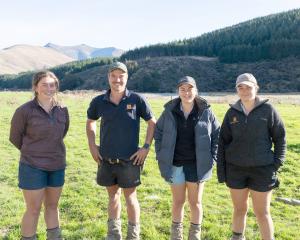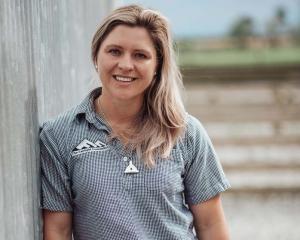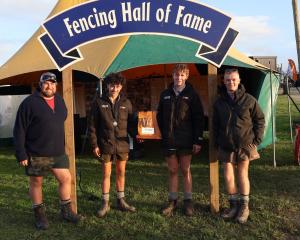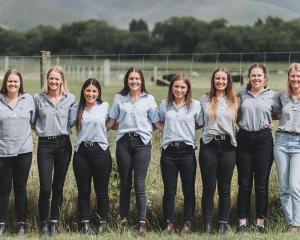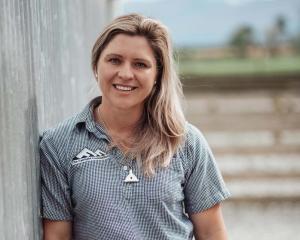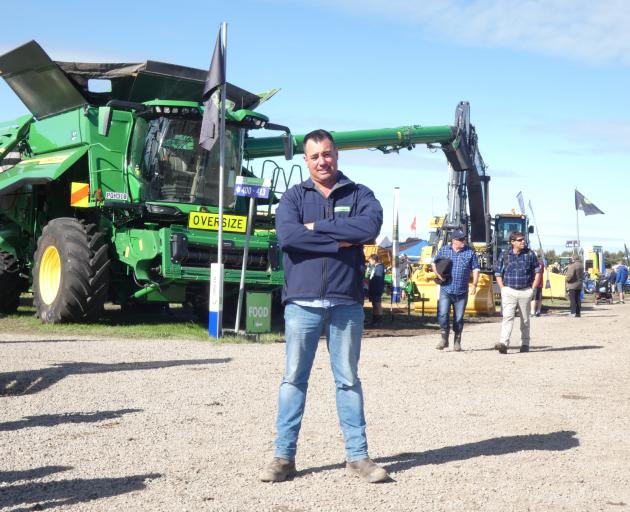
Gumboots were the footwear of choice for visitors at the three-day event with muddy tracks sometimes ankle-deep.
This did not make a dent in the turnstiles with organisers estimating foot traffic at the targeted turnout of 24,000 to 26,000 visitors.
Exhibitor numbers were at near record levels for the Kirwee site, which alternates with Southland’s Waimumu every second year.
The sun came out in the final day to firm up the site for visitors as they went from one display to another of rural technology, equipment and ideas.
Organising committee chairman Hayden Dorman said the Friday sunshine was a contrast to the coldest and wettest Wednesday in 13 years of his being involved with the event.
"We knew it was coming, but we had great numbers on Wednesday considering and farmers couldn’t do much at home but to feed the stock and come here. Only 25mm came on that Tuesday/Wednesday, maybe a bit more, but Tuesday afternoon is always busy as exhibitors finish their sites and come driving in and that’s where we got the mud from. Everyone had their boots on at the car parks and Swannies and wet weather gear and just went for it."

"To be fair everyone was in good spirits. Maybe 99% of people, whether exhibitors or farmers, that came here were just happy to be here. It’s great to have something after Waimumu missed out from Covid-19 and we were lucky to dodge it, so it’s good to see everything back in motion now."
Mr Dorman said sales numbers would only emerge later when leads made at the event were chased up.
He said some farmers were in a holding pattern as a result of high costs and government compliance.
"To be fair a lot of this gear has probably been sold anyway and it was like that at the last field days, but they’ve done a really good job and it’s about comparing those big-ticket items in displays and you only have to walk another 40m to see another. Some of these machines are big money these days."
The pricier combine harvesters were estimated to be worth $1.1 million to $1.2 million and a self-propelled potato harvester is believed to have a heftier price tag.
Mr Dorman said there were tens of millions of dollars of machinery and equipment both large and small on site.

After a count-up organisers estimated 7200 visitors arrived on Wednesday, "well over" 10,000 on Thursday and somewhere between them on Friday.
"We are happy. We had some people asking if numbers were down and we were just shaking our heads. There’s still a wee bit of work to be done out there on farms especially in this greater Canterbury area, but when it’s this wet people make the decision to come and they come because they can’t do anything at home."
The introduction of the agricultural innovation awards was a success with the EcoPond system developed by Lincoln University and Ravensdown the winner in a field of eight entries. The treatment system removes most of the methane from dairy farm effluent ponds and claimed to cut 4-5% of total farm methane emissions if it was adopted by every dairy farm.
Mr Dorman said it was pleasing to see such a strong calibre of entries as farmers were always keen to see the next innovation particularly with the drive to be cleaner and greener.
"Farms are bigger, labour’s harder so they need tech and I know this in my own business with apps and collars and all those sort of things. It doesn’t take away that attention to detail and you still need to know the nuts and bolts, but when you get this technical stuff it helps everyone. You see guys in their late 70s now and early 80s and they’ve got the latest apps and tech on their farm. It’s a fast moving segment."
The committee will recap on the event and take feedback from an exhibitor review to make ongoing improvements for the next event.




